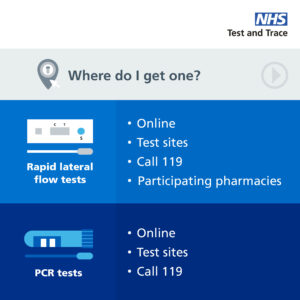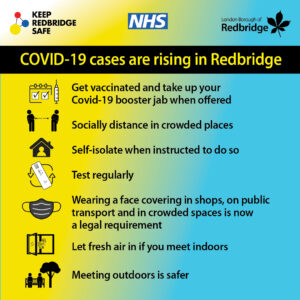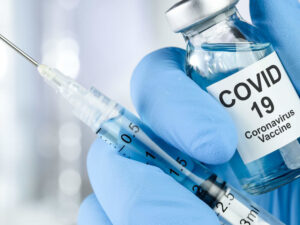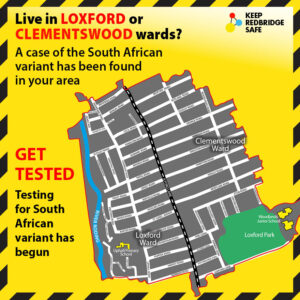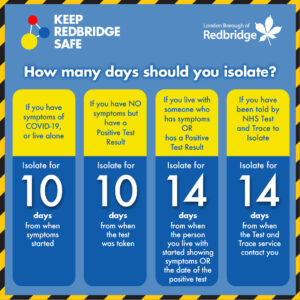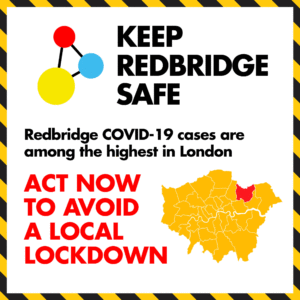
Coronavirus Announcement
20 January - Message from the Faith Minister
As you will have heard, the Prime Minister has today announced that the measures put in place at the end of last year under Plan B in England will be lifted next week.
This means:
- The government is no longer asking people to work from home if they can. People should now talk to their employers to agree arrangements to return to the office.
- From 20 January: Face coverings will no longer be advised for staff and pupils in secondary school and college classrooms.
- From 27 January: Face coverings will no longer be advised for staff and pupils in communal areas of secondary schools, nor for staff in communal areas of primaries. Directors of Public Health will only be able to recommend pupils and staff wear masks in communal areas in places where there are outbreaks or where the local public health situation justifies it, and with sign-off from the Education Secretary.
- From 27 January: There is no longer a legal requirement to wear a face covering. The government suggests that you continue to wear a face covering in crowded and enclosed spaces where you may come into contact with other people you do not normally meet.
- From 27 January: Those venues and events will no longer be required by law to check visitors’ NHS COVID Pass. The NHS COVID Pass can still be used on a voluntary basis.
Our own Places of Worship guidance will be updated and amended ready for the 27th. In the interim, you should assume that from the 27th the position for Places of Worship will resemble the good practice advice on keeping each other safe that was in place before the Plan B measures were implemented.
I will write again as soon as that has been agreed and online guidance has been amended and updated.
From 17 January 2021
People with COVID-19 in England can end their self-isolation after 5 full days, as long as they test negative on day 5 and day 6. You can stop self-isolating at the start of day 6 if you get 2 negative rapid lateral flow test results on days 5 and 6 and do not have a temperature. Tests must be at least 24 hours apart. If either test is positive, wait 24 hours before testing again.
England is moving to Plan B in response to the risks of the Omicron variant.
- Wear a face covering in most indoor public places and on public transport
- Get tested and self-isolate if required
- Work from home, if you can
- Get vaccinated
- Let fresh air in if you meet indoors. Meeting outdoors is safer
The rules for entering England change depending on where you have travelled from outside the UK. Check the rules if you’re entering Scotland, entering Wales or entering Northern Ireland.
You are strongly discouraged from all unnecessary travel to red or amber list countries or territories, for example for leisure purposes.
In England
A new COVID-19 variant is spreading in some parts of England. Find out what you should do.
Coronavirus remains a serious health risk. You should stay cautious to help protect yourself and others.
- Let fresh air in if you meet indoors. Meeting outdoors is safer
- Wear a face covering in crowded and enclosed spaces where you come into contact with people you do not normally meet
- Get tested and self-isolate if required
- If you haven’t already, get vaccinated
Legal limits on the number of people allowed to meet outdoors and indoors, including in places of worship have been removed. The 1m+ social distancing rule has also been removed.
What’s changed:
COVID-19 remains a risk
It is still possible to catch and spread COVID-19, even if you are fully vaccinated.
Anyone with COVID-19 symptoms or a positive test result should stay at home and self-isolate immediately. If you have symptoms of COVID-19, you should arrange to take a PCR test as soon as possible, even if you’ve had one or more doses of a COVID-19 vaccine.
COVID-19 will be a feature of our lives for the foreseeable future, so we need to learn to live with it and manage the risk to ourselves and others.
All of us can play our part by understanding the situations where risks of COVID-19 infection and transmission are likely to be higher, and taking action to reduce these risks.
Following this guidance will help you to understand situations where there is a greater risk of catching or spreading COVID-19 and the steps that you can take to stay safe and protect others. Every action you can take to help reduce the spread will help reduce pressure on the NHS during the winter months.
Understanding the risks of COVID-19
The risk of catching or passing on COVID-19 can be higher in certain places and when doing certain activities. COVID-19 is spread by airborne transmission, close contact via droplets, and via surfaces. Airborne transmission is a very significant way that the virus circulates. It is possible to be infected by someone you don’t have close contact with, especially if you’re in a crowded and/or poorly ventilated space.
Close contact with an infected person is also a significant way COVID-19 is spread. When someone with COVID-19 breathes, speaks, coughs or sneezes, they release particles containing the virus that causes COVID-19. The particles can come into contact with the eyes, nose or mouth or can be breathed in by another person. The particles can also land on surfaces and be passed from person to person via touch.
In general, the risk of catching or passing on COVID-19 is higher in crowded and enclosed spaces, where there are more people who might be infectious and limited fresh air.
In situations where there is a higher risk of catching or passing on COVID-19, you should be particularly careful to follow the guidance on keeping yourself and others safe. Every little action helps to keep us all safer.
Keeping yourself and others safe
There are still cases of COVID-19 in England and there is a risk you could catch or pass on the virus, even once you are fully vaccinated. This means it is important that you understand and consider the risks of catching or spreading COVID-19 in all situations.
While no situation is risk free, there are easy and effective actions you can take to protect yourself and others around you.
If you are worried about going back to a more ‘normal’ life, there is information from the NHS on how to cope with anxiety about lockdown lifting.
You should get a test and follow the stay at home guidance if you have COVID-19 symptoms.
If you do travel, follow the expert advice on hand washing and other health measures.
Click here for For more information
Stay safe
Living with Covid – Network Meeting 26 April 2022
RFF was delighted that Ian Diley, Public Health Consultant accepted our invitation to speak at our April network on the topic of “Living With Covid“. Ian last met with us in July 2020 and we knew that he would give us a very comprehensive overview and answer our questions which indeed he did. The meeting…
COVID-19 – vaccinations in Redbridge
Residents are urged not to remain unprotected from COVID-19. Everyone over 12 is now eligible to book their first or second dose of a COVID-19 vaccination and those aged over 18 now eligible to book their booster vaccination appointment by: booking via the NHS website booking by calling 119 visiting your local pharmacy – listed here visiting…
COVID-19 – new variant
On Sunday 28 November the government announced new measures after cases of the COVID-19 Omicron variant were found in the UK. As well as these new measures, it is important that residents continue to get tested and vaccinated against the virus. Testing is still the best way to stop the spread and the vaccine has…
“I have taken the vaccination and its safe”
RFF trustees who have been offered the Covid19 vaccination have taken it and are encouraging everyone who is able to have the vaccine to do so. At RFF we feel it is very important to have the vaccination in order to protect ourselves, our families, friends and the community at large. All of the vaccine…
COVID-19 update
In the past two weeks, the Council has been busy implementing a surge testing programme in Loxford and Clementswood after Public Health England notified us that a case of the South African variant had been detected in the borough. The Prime Minister has also announced his roadmap out of lockdown. Details on this can be…
Places of Worship Guidance – November 2020
(Updated on 05/11/2020)On 31st October at 8:30pm the Prime Minister announced further widespread restriction in Englandbeginning on Thursday 5 November until Wednesday 2 December. The Government is taking thefollowing action: Requiring people to stay at home, except for specific purposes. Preventing gathering with people you do not live with, except for specific purposes. Closing certain…

